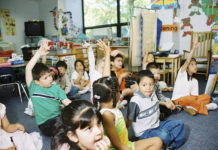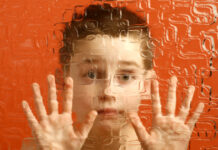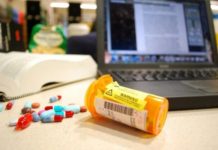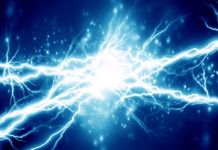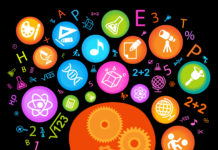Time for a Paradigm Shift in School Psychology Interventions
Why do ineffective classification and intervention processes linger in school psychology, and what’s the alternative?
About 1 in 100 Children Treated with Ritalin Experience a Serious Adverse Event
A recent Cochrane review has found that serious adverse events occur for about 1% of children and adolescents treated with Ritalin.
News Flash: 4.5 Million Children Forced Daily by “Caretakers” to Do Cocaine-like Drugs
Before we get to the meat and potatoes documenting how this headline is not only shocking but also accurate, you must know that a secondary goal of this blog is to test a few theories. I have been pondering these theories because it seems to be a mystery as to why (after more than two decades of whistleblowers warning the public) so many adults have not heard or heeded the news that ADHD stimulant drugs, which are not that different from cocaine, are extremely dangerous for kids.
ADHD: The Hoax Unravels
At the risk of stating the obvious, ADHD is not an illness. Rather, it is an unreliable and disempowering label for a loose collection of arbitrarily chosen and vaguely defined behaviors. ADHD has been avidly promoted as an illness by pharma-psychiatry for the purpose of selling stimulant drugs. In which endeavor, they have been phenomenally successful, but, as in other areas of psychiatry, the hoax is unraveling.
Love Note for Valentine’s Day: Beware of Those Peddling ADHD Drugs
A recent New York Times front-page story about ADHD care gone awry concluded with disturbing quotes from a an information session that was held in Norfolk, VA last October. “ADD and Loving It?!” was sponsored by Children and Adults with Attention Deficit Disorder (CHADD)—the leading advocacy group for ADHD. The story raises questions our country’s love affair with ADHD by detailing the tragic death of an aspiring medical student from the Norfolk-Virginia Beach area who became addicted to ADHD drugs.
Winners of the American Dream
Since I left the psychiatric prescribing trenches and came south for the winter, I’ve been staying in a beach town within driving distance of a technology metropolis. I take breaks from my writing and walk to the beach. There, I meet and talk with the winners of the American dream. They are intelligent, highly educated and financially successful. They take their beach vacations here.
Antidepressants and Pregnancy: Who Says They Are Safe?
Depression during pregnancy is an important issue. Depression should not be ignored and depressed pregnant women deserve good treatment and care. Part of that good care, though, is providing them with full and correct information. I care for pregnant women taking antidepressants on a daily basis and too often they tell me that the only counseling they received about the medication was, “my doctor told me it’s safe in pregnancy.” This post will review the evidence in this area and address the counterarguments.
The ADHD Drug Epidemic: Addiction, Abuse, and Death
A new analysis of FDA data, published on September 10th by the Milwaukee Journal Sentinel/MedPage Today, reveals the dangers of the common prescription of...
School Culture May Contribute to Overdiagnosis, Study Finds
Officials at a school that was more focused on ADHD diagnoses described children’s behavior in terms of individual illnesses, taking children out of the context of their social interactions, race, gender, and socioeconomic status.
Duty to Warn – 14 Lies That Our Psychiatry Professors in Medical School Taught...
Revealing the false information provided about psychiatry should cause any thinking person, patient, thought-leader or politician to wonder: “how many otherwise normal or potentially curable people over the last half century of psych drug propaganda have actually been mis-labeled as mentally ill (and then mis-treated) and sent down the convoluted path of therapeutic misadventures – heading toward oblivion?”
Children with Autism may be Over-diagnosed with ‘ADHD’
A commonly used ADHD diagnostic measure may find overlapping symptoms in autism and ADHD, resulting in over-diagnosis.
Psychiatry’s 12-Step Program for Producing Heroin Addicts
I believe that today’s heroin addicts are a new breed — the seeds of their creation were sown back in 1990, when doctors’ lies about normal childhood immaturity being a genetic “brain illness” became accepted. Here are some statistics that support my argument that psychiatry is the root cause of our heroin epidemic.
ADHD Diagnosis Based on “Illogical Rhetoric,” Analysis Claims
In a philosophically rigorous article, Spanish researcher Marino Pérez-Álvarez examines the logic of attention-deficit hyperactivity disorder (ADHD).
First Systematic Review of Leading School-Based Mental Health Programs
Results reflect moderate to strong evidence in support of the non-pharmacological school-based interventions reviewed in the study.
Stimulant Drugs Have Adverse Effects on Cognitive Functioning in Healthy Students
Study of students without an ADHD diagnosis finds that stimulants (Adderall) have little impact on cognitive performance.
What if ACEs (Adverse Childhood Events) Were the Basis of Mental Health Treatment?
What would happen if the mental health system fully recognized the pervasive and profound impacts of trauma on their clients? How might a deeper appreciation of the multi-faceted sequelae of childhood maltreatment and toxic stressors reshape mental health services? While the implementation of trauma-informed care in mental health programs has made significant inroads, the dominant bio-reductionist model continues to constrain and undermine progress.
A Smashing Victory — And an Insidious New Threat
Afraid of facing me in court, the state gave up entirely and a young man was freed from involuntary ECT treatment. It was a total victory. Meanwhile, the Psychiatric Industrial Complex is finding more subtle ways to inflict electrical energy upon the brains of children labeled with ADHD.
Critical Influence of Nutrition on Psychosocial Wellbeing in Childhood
The bidirectional relationship between diet and nutrition and social, emotional, and educational factors among European youth.
The Real Attention Deficit Disorder
The fact that we shame people for acting like they need attention (and for actually needing attention) is self-defeating and maddening, not to mention absurd. Living in a society that punishes people for having fundamental needs like attention is probably one of the reasons people have developed behaviors “just” to “get attention.”
“The Overdiagnosis of ADHD”
The general theme, that various "mental illnesses" are being "overdiagnosed" is gaining popularity in recent years among some psychiatrists, presumably in an effort to distance themselves from the trend of psychiatric-drugs-on-demand-for-every-conceivable-human-problem that has become an escalating and undeniable feature of American psychiatric practice. But the implicit assumptions – that there is a correct level of such labeling, and that the label has some valid ontological significance – are emphatically false.
Researchers Highlight Pitfalls of Cognitive Assessment in Schools
Historical, current, and potential future complexities of cognitive assessment; a longstanding, controversial fixture in schools throughout the United States.
Majority of Youth Prescribed Antipsychotics Have No Psychiatric Diagnosis
The majority of children, adolescents and young adults prescribed antipsychotic medications have not been diagnosed with a mental disorder, according to a recent study published in JAMA Psychiatry.
Why Some Children with Depressed Parents Show Resilience
Children of parents who suffer from depression have a severely heightened risk of mental health problems, but new research points to several factors that seem to strengthen young peoples’ resilience and predict good mental health.
Researchers Question the “Adequacy and Legitimacy” of ADHD Diagnosis
A new article, just published online in the journal Emotional and Behavioural Difficulties, presents research suggesting that the diagnosis of ADHD is philosophically inadequate.
What Does an 800 lb Gorilla in the Room Say at an ADHD Conference? ...
This blog is a little different than my normal. I want to tell you about an inspiring ADHD conference I took part in last week and a band of 800 lb. gorillas who gently shared the obvious with adults just wanting the facts when it comes to ADHD. First, if you didn't know, October was ADHD awareness month. Yes, according to www.ADHDawarenessmonth.org, a website sponsored by Shire Pharmaceuticals (the philanthropic makers of Adderall and Vyvanse) and supported by a large collection of non-profit groups (e.g., CHADD) conveniently supported by the profits of many other ADHD-focused pharmaceutical companies, October was the month to celebrate awareness of ADHD. October was the month to learn more about the ADHD stimulant drugs so often prescribed. Move along folks… nothing to see…no conflict of interest here.

